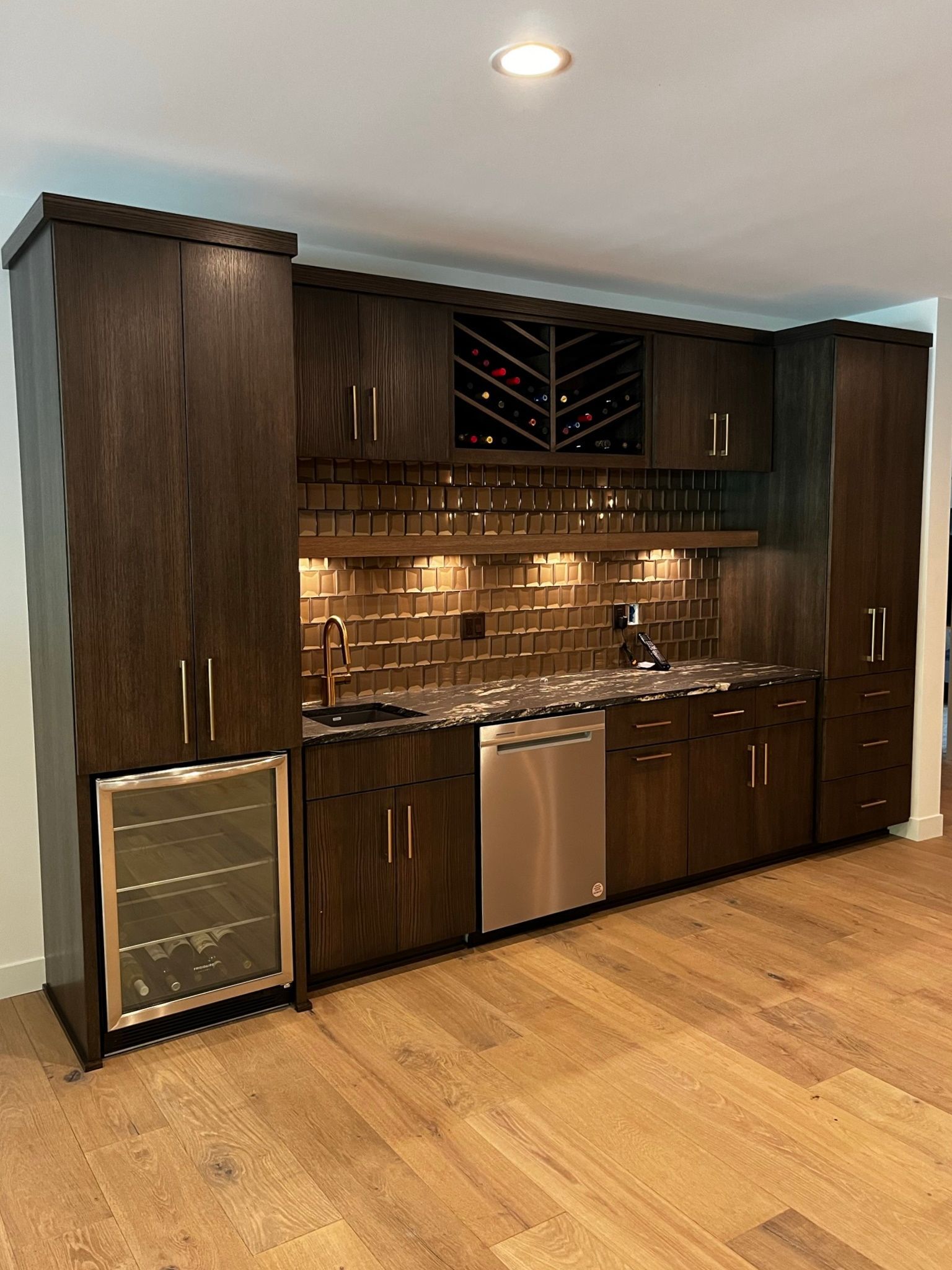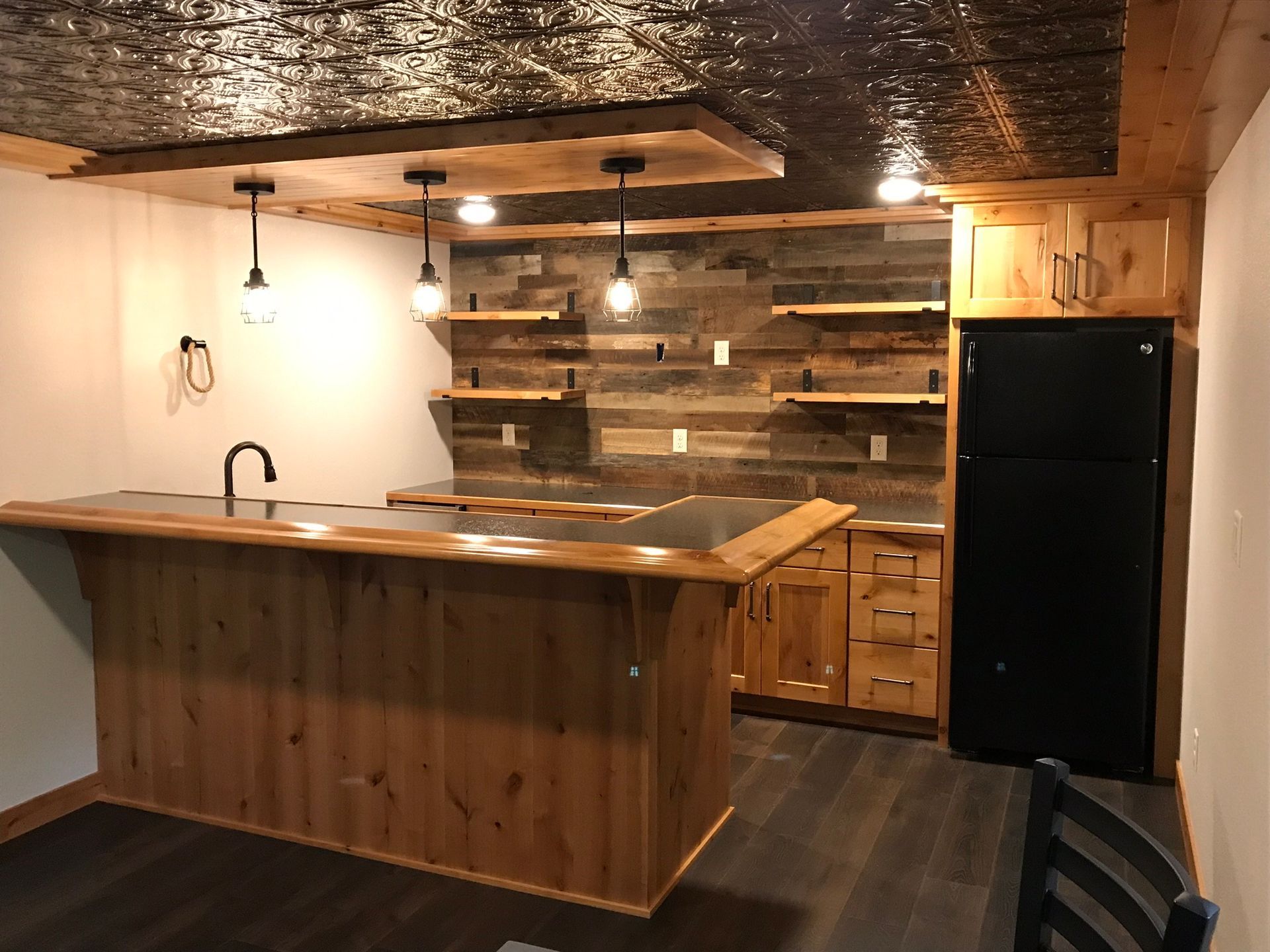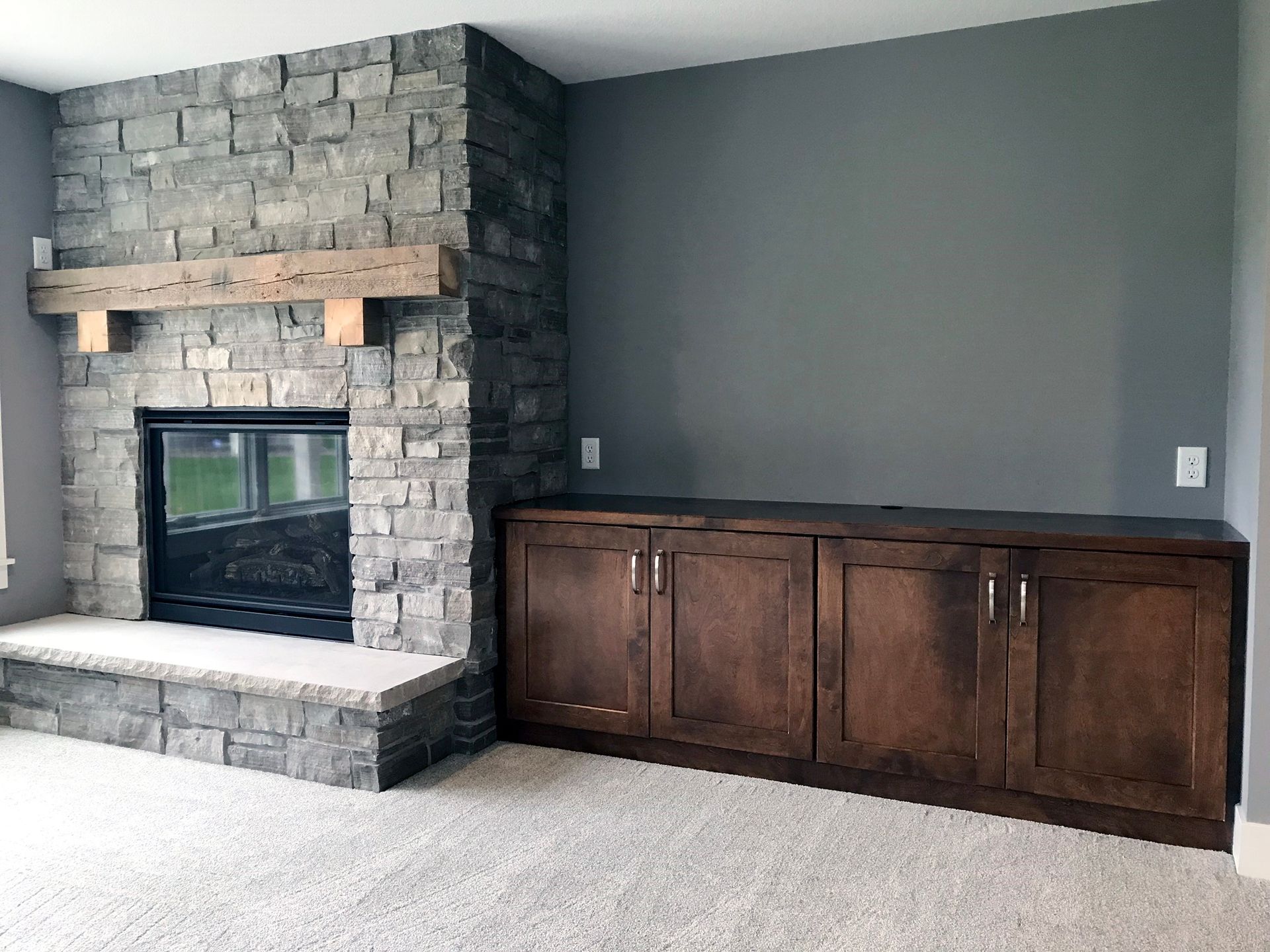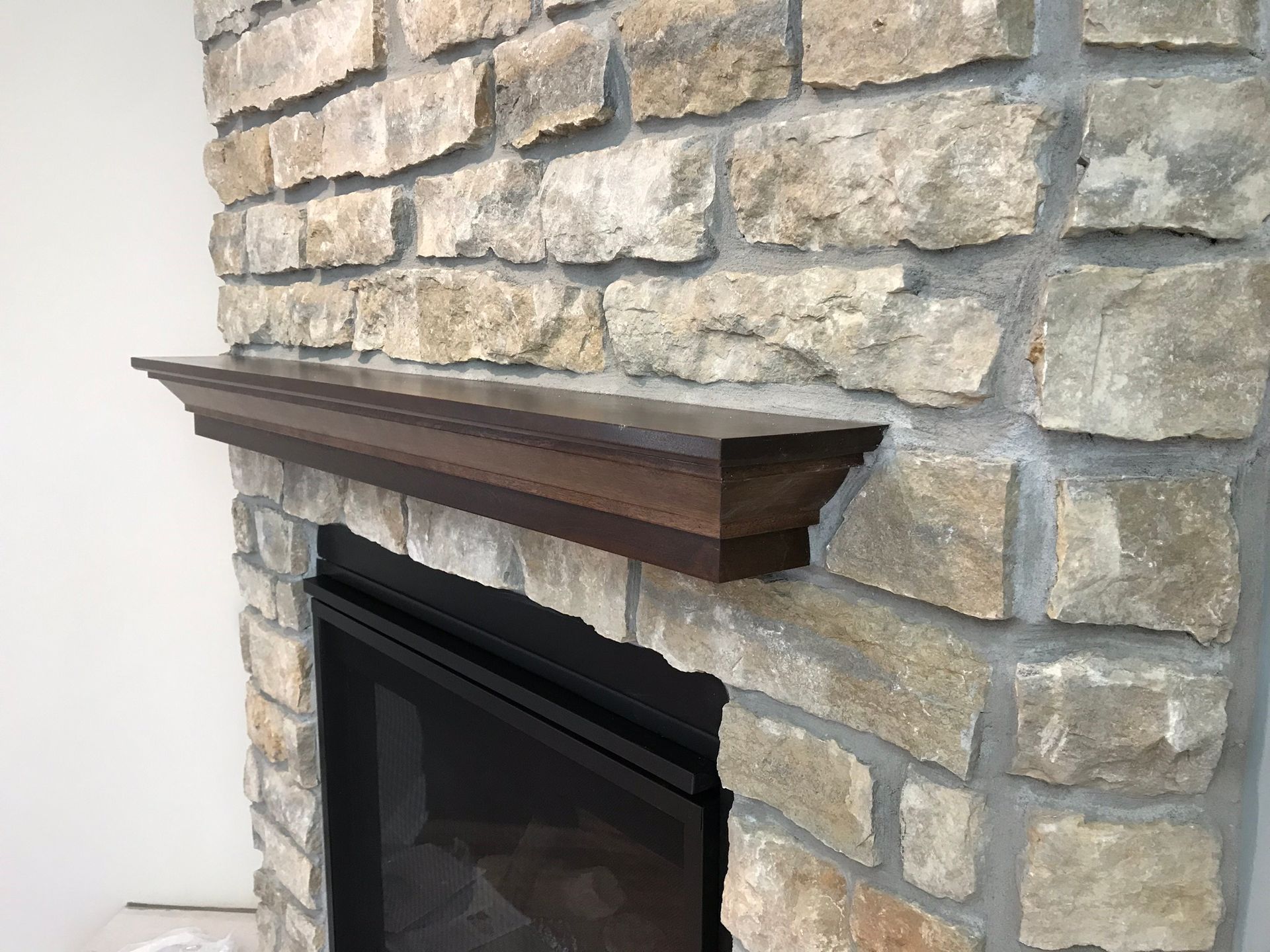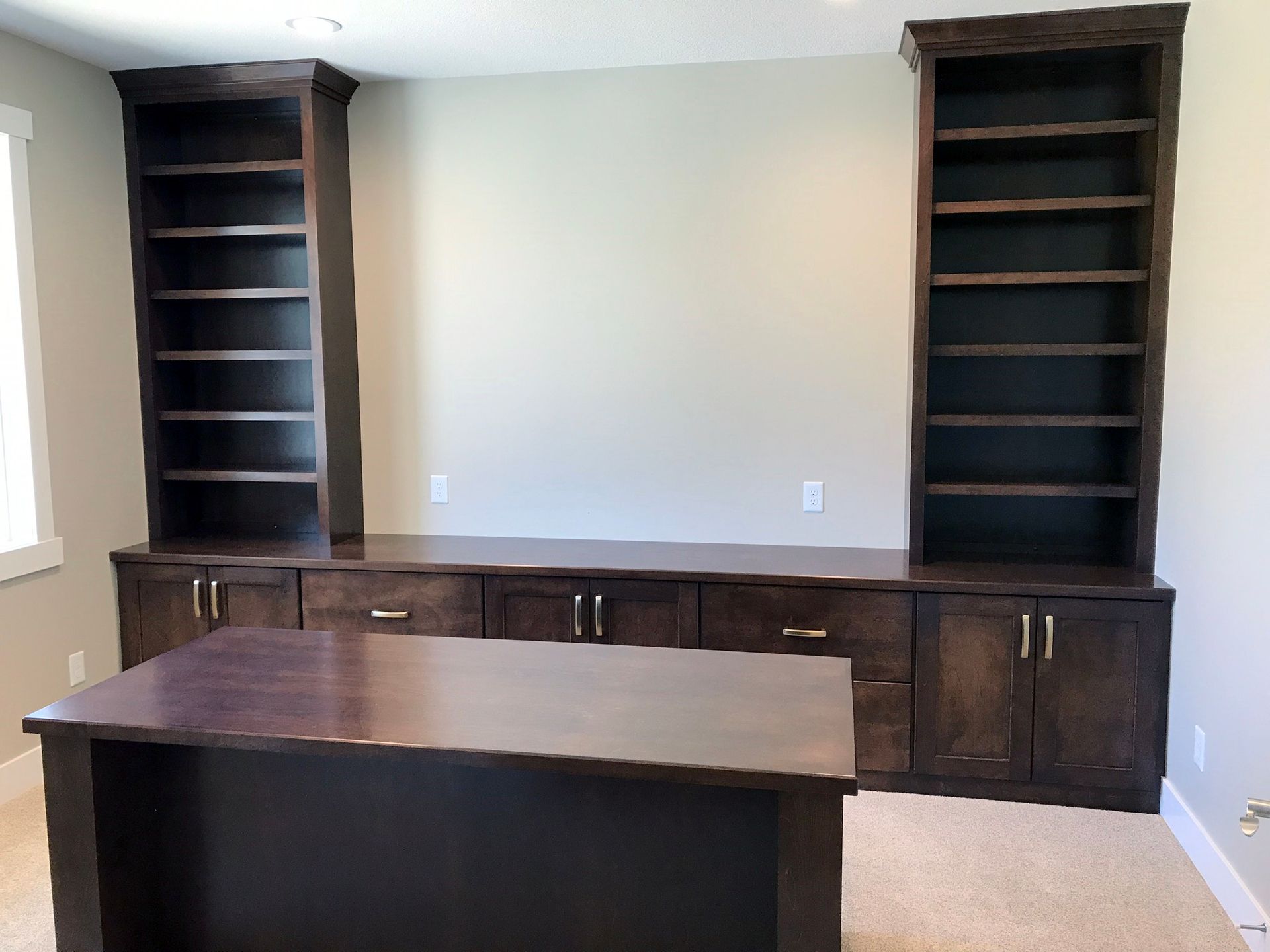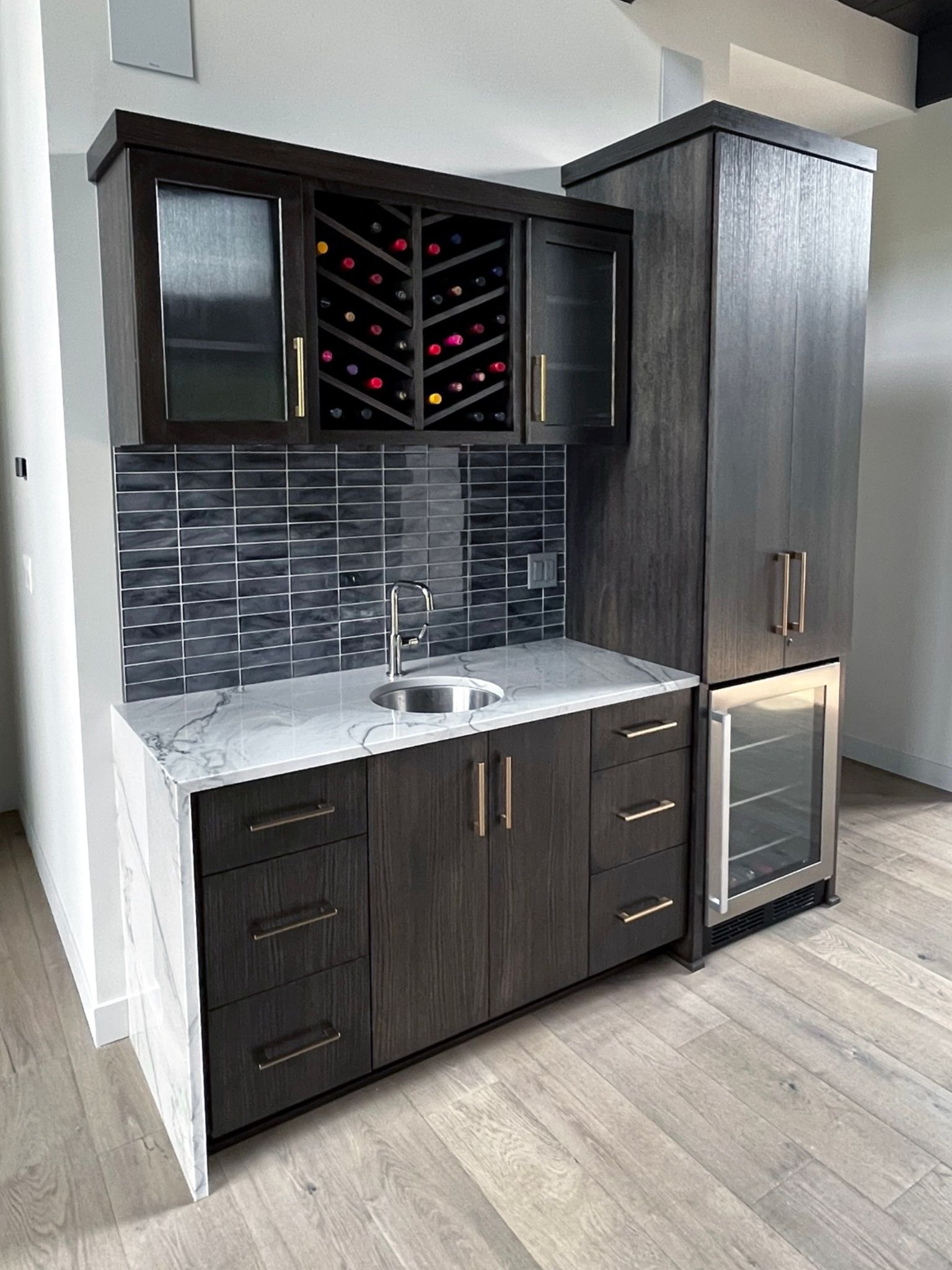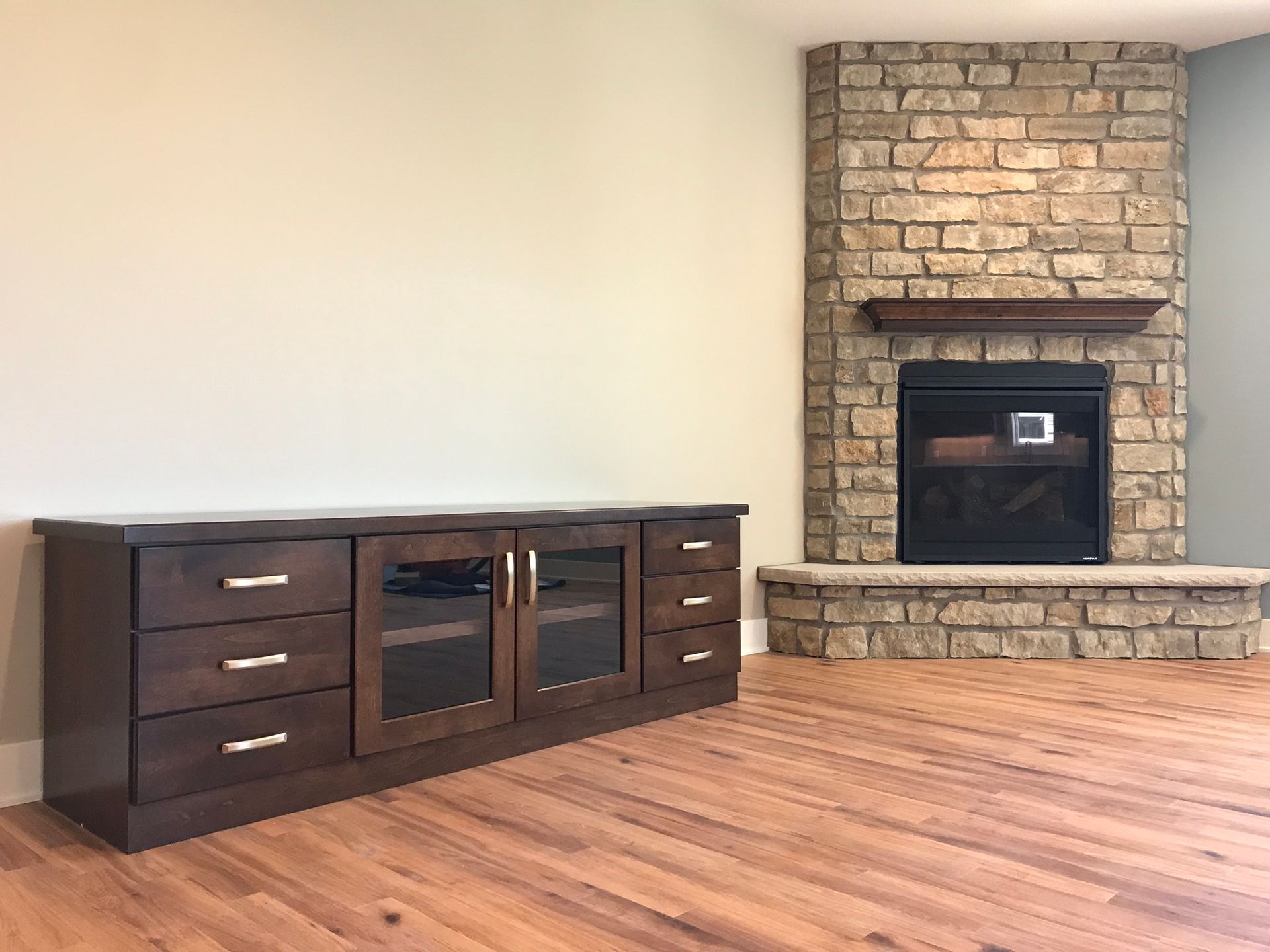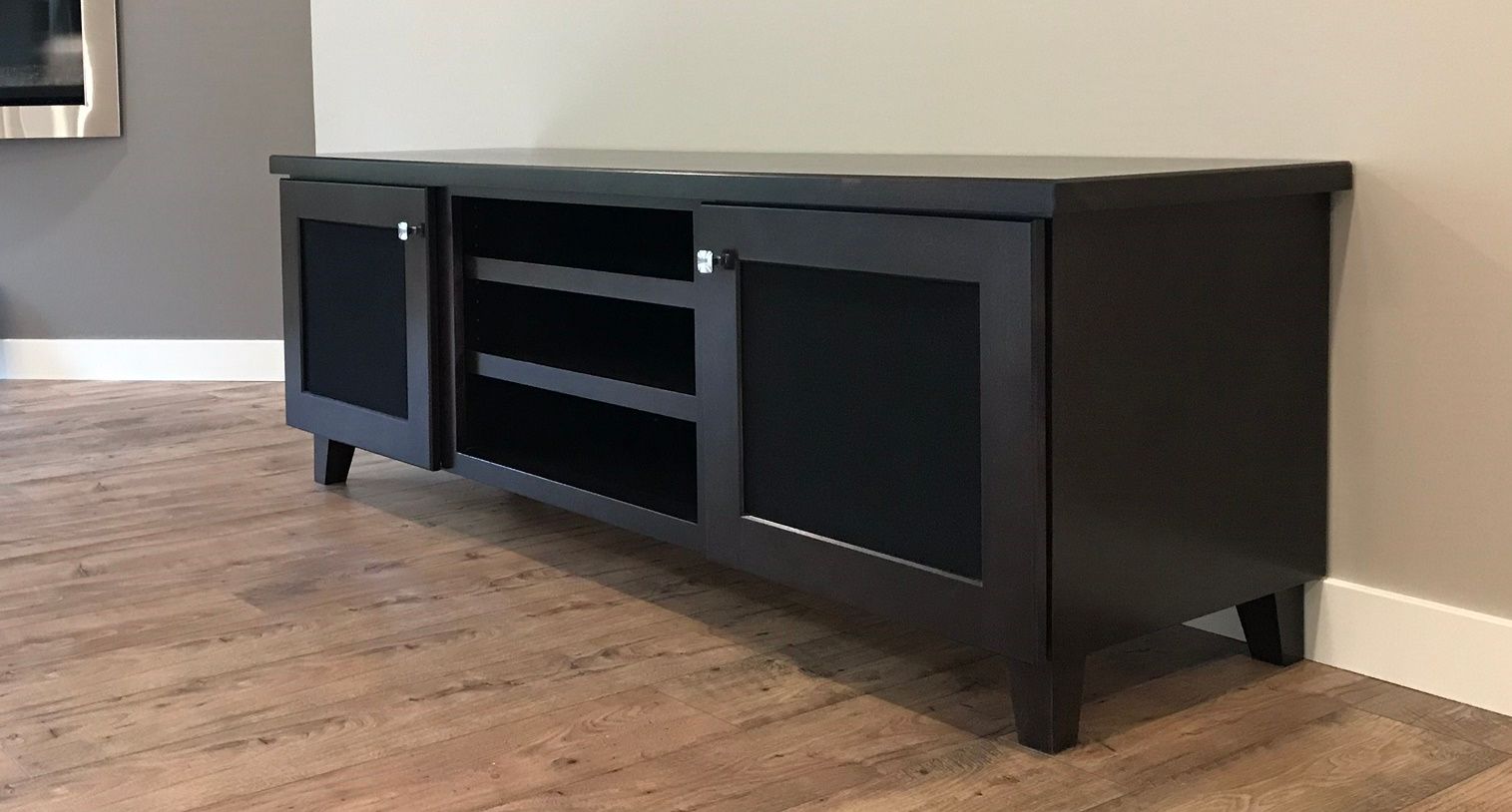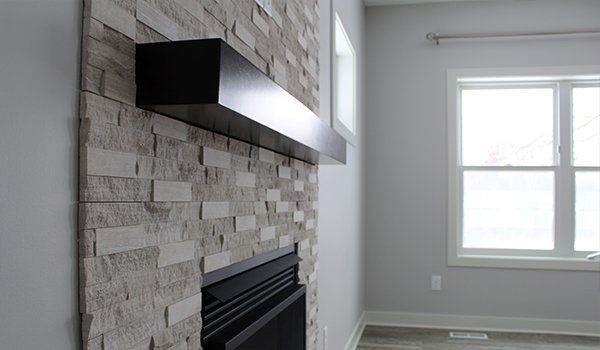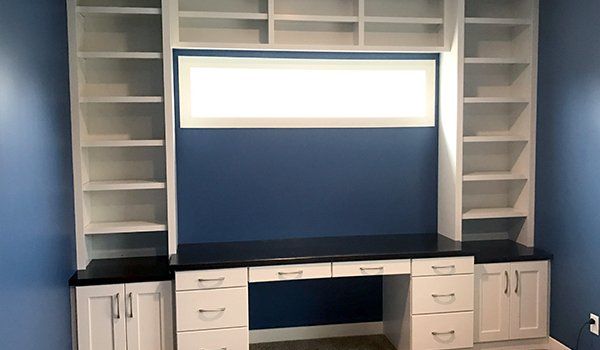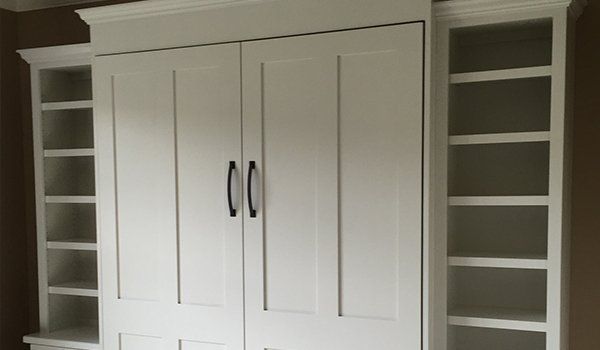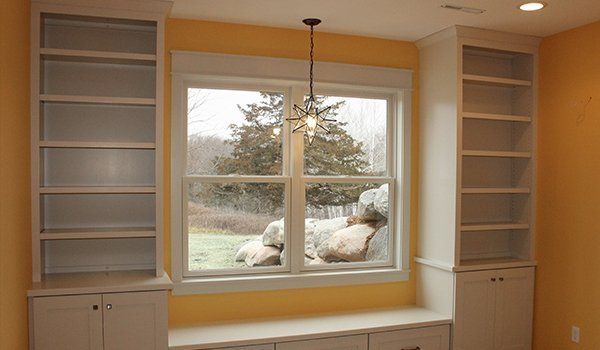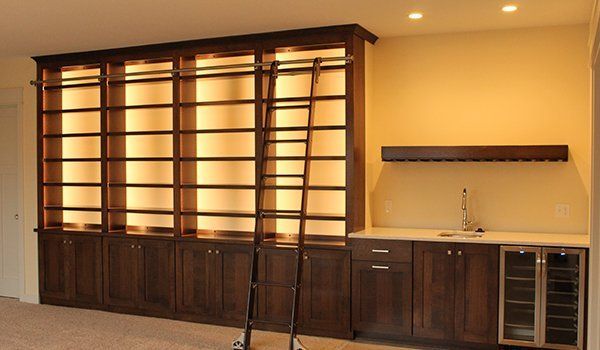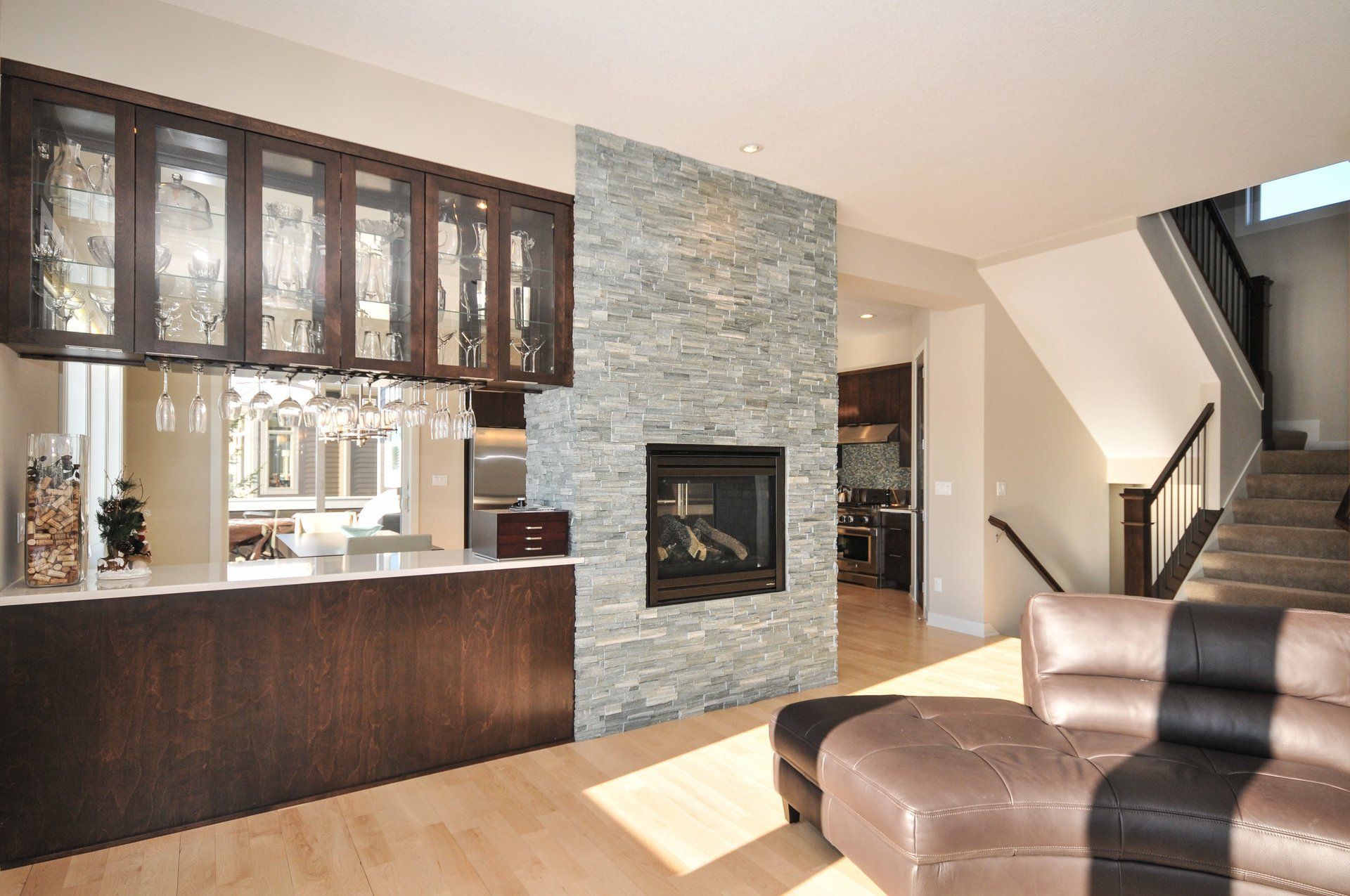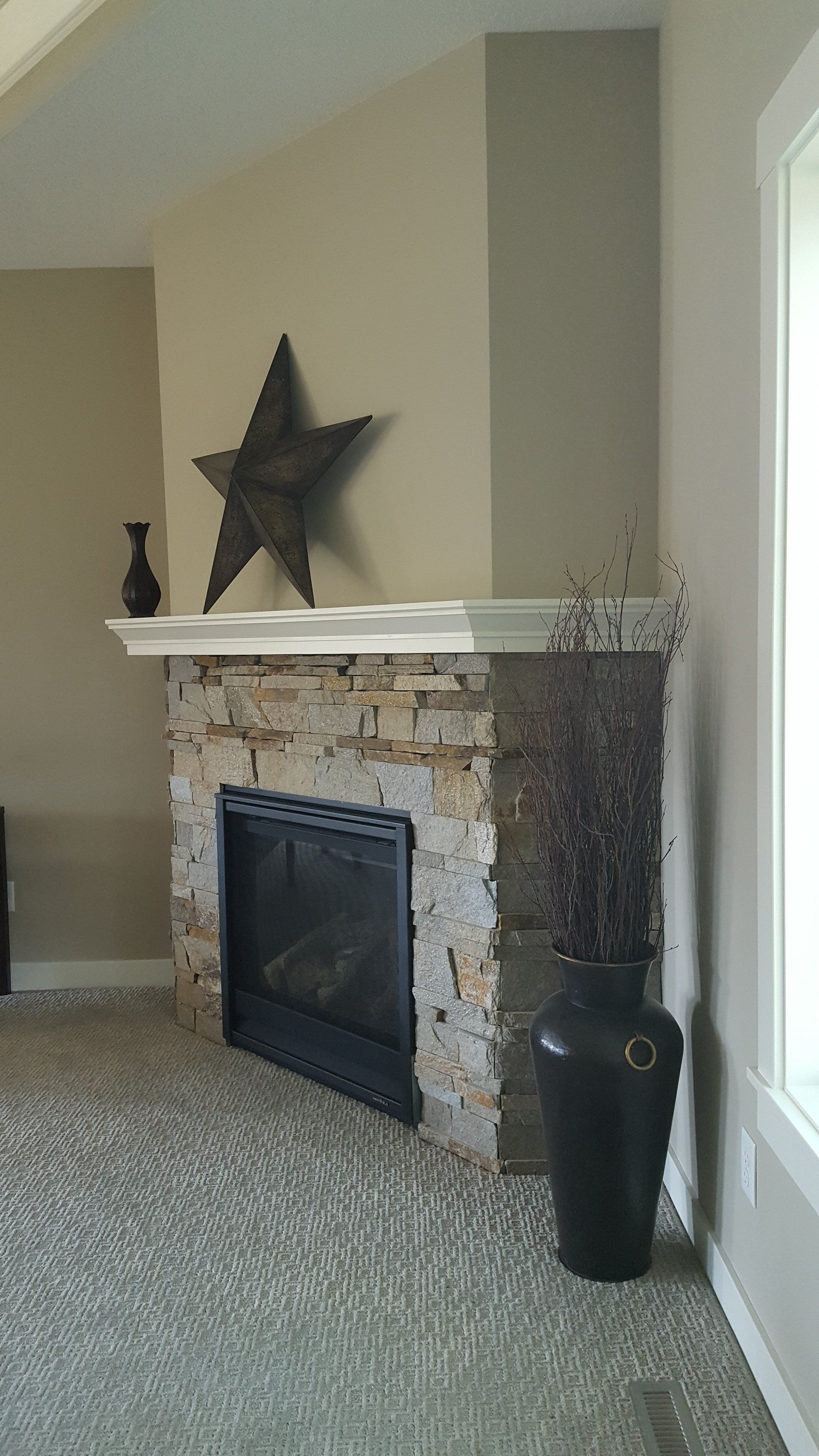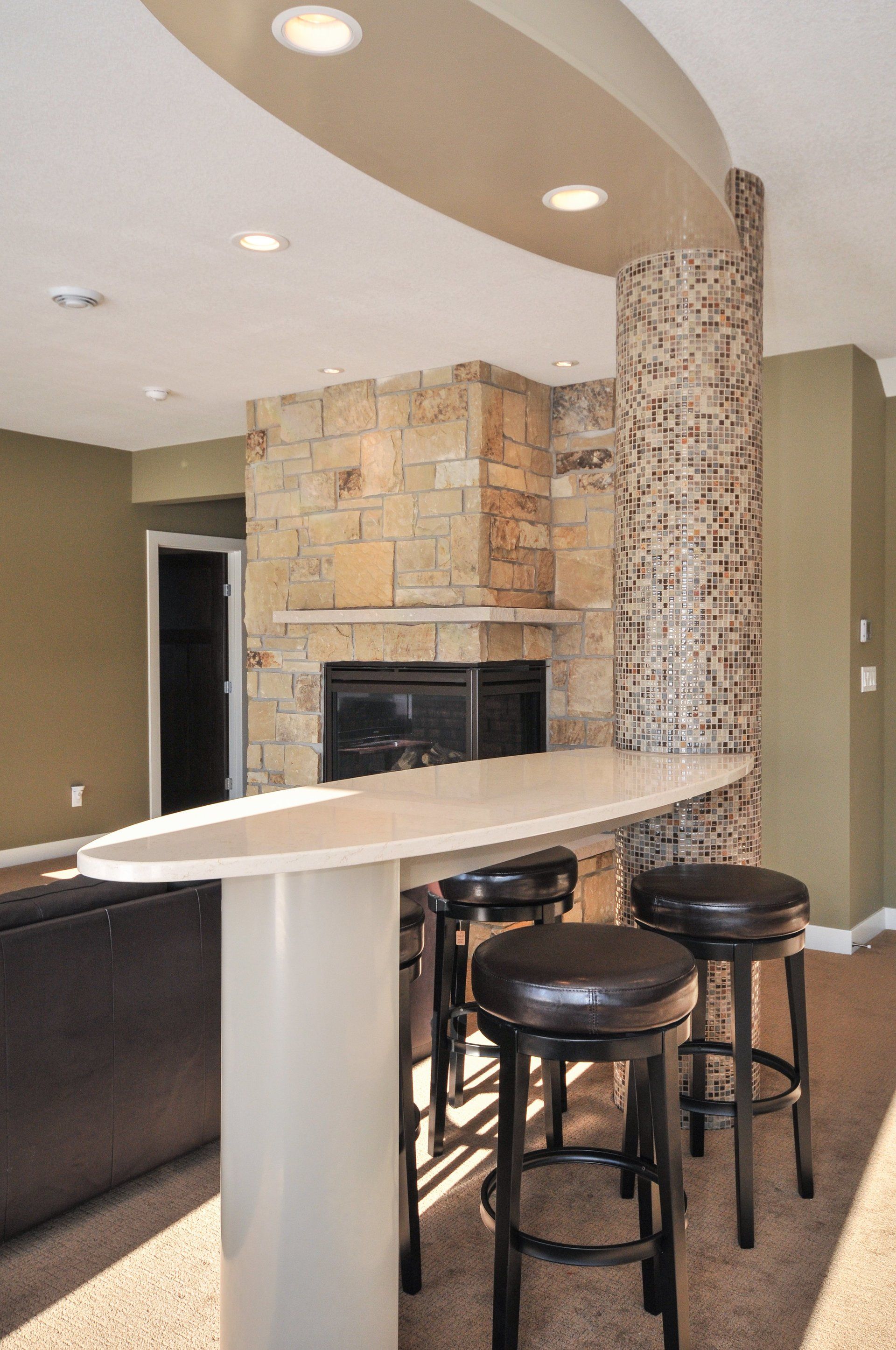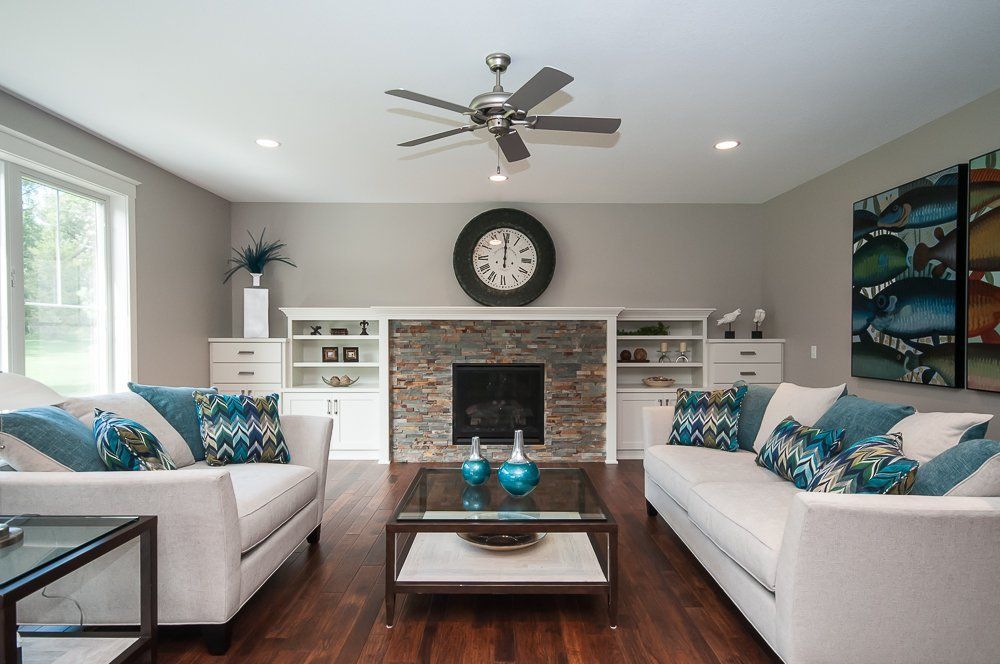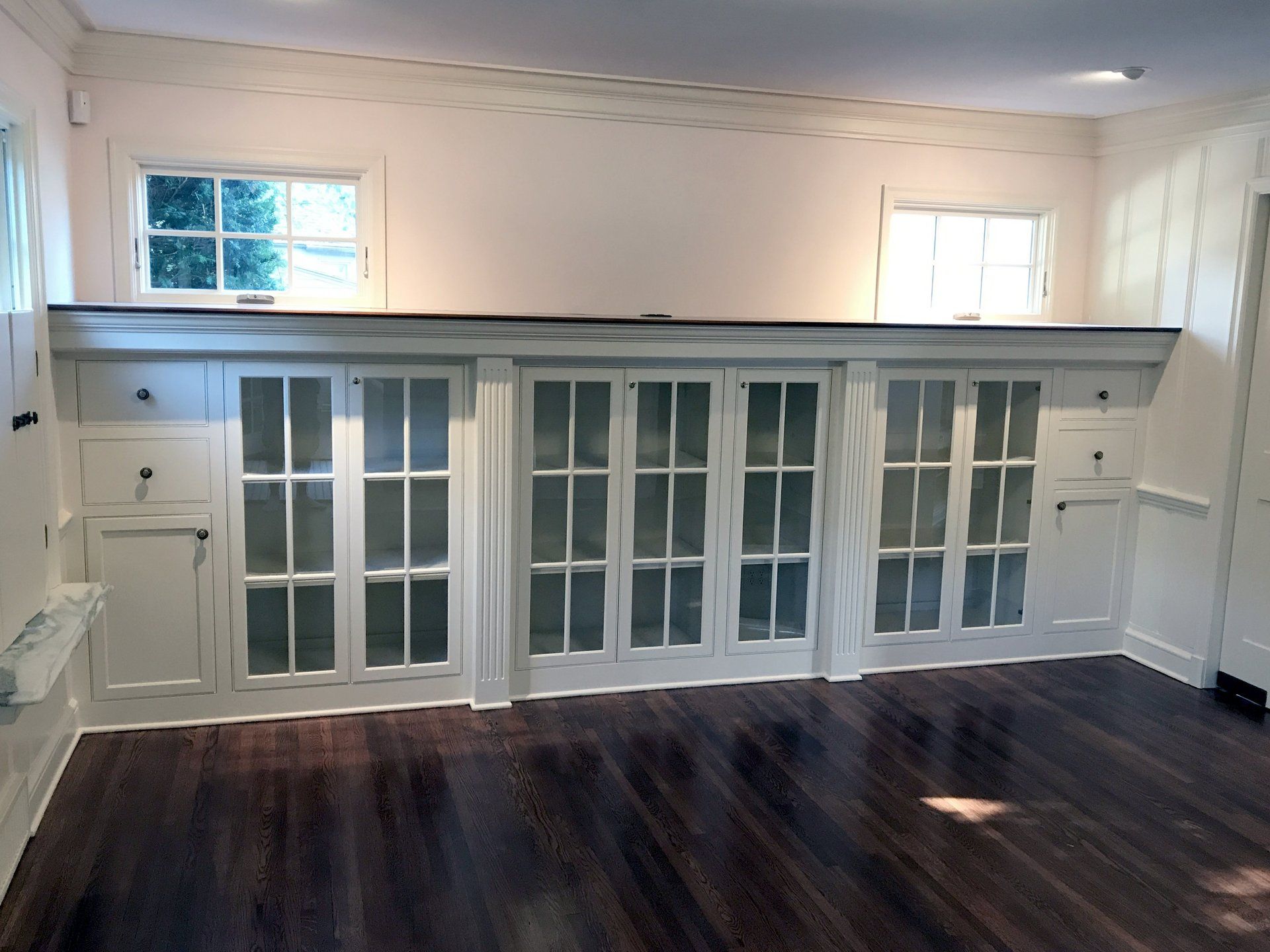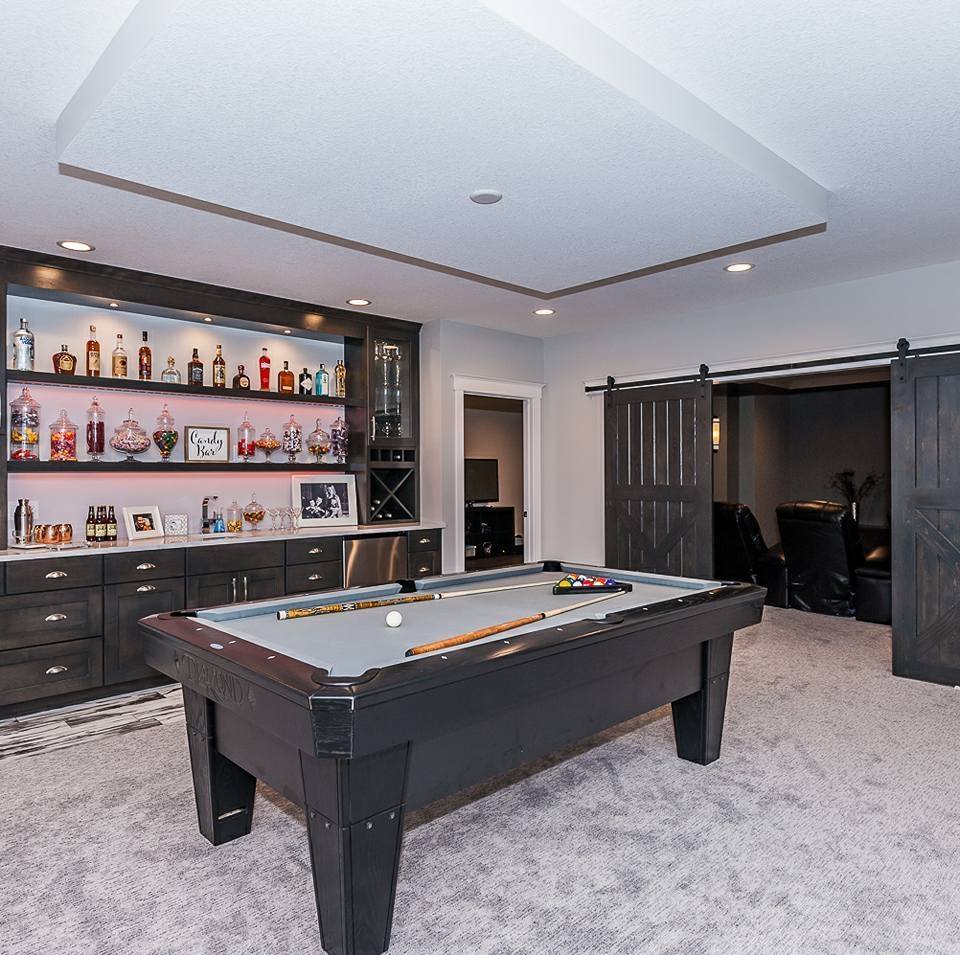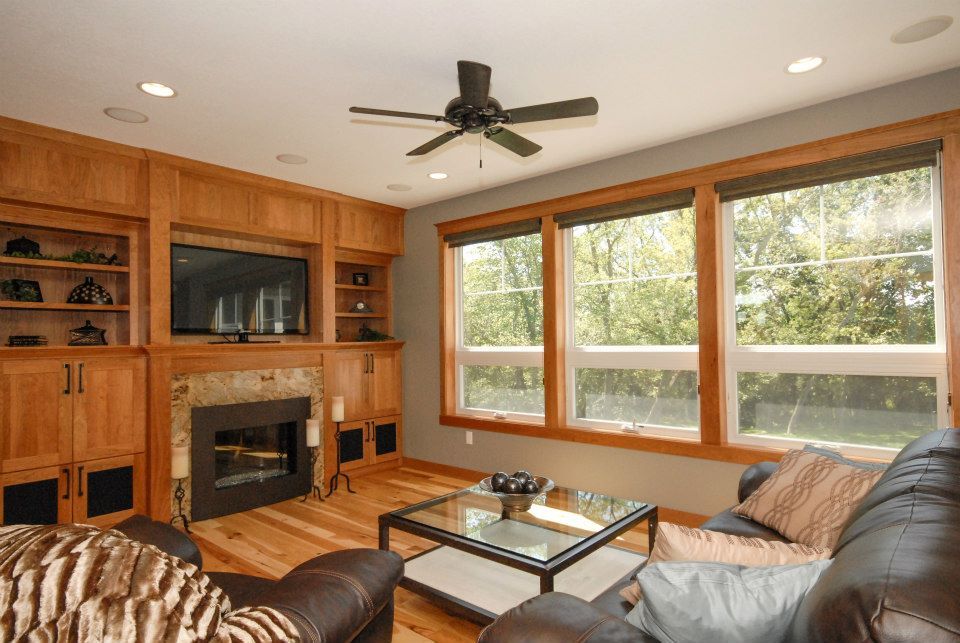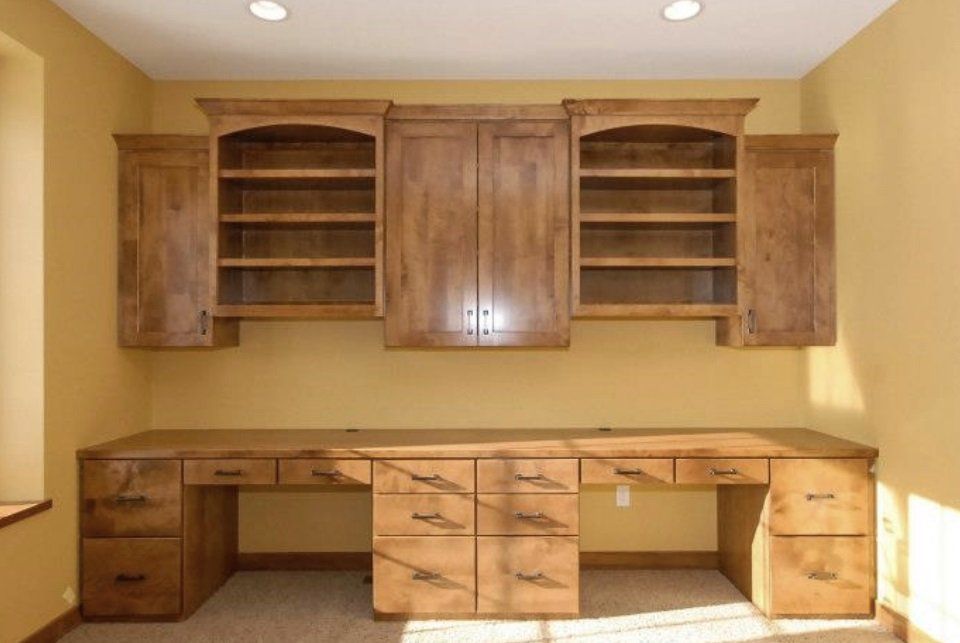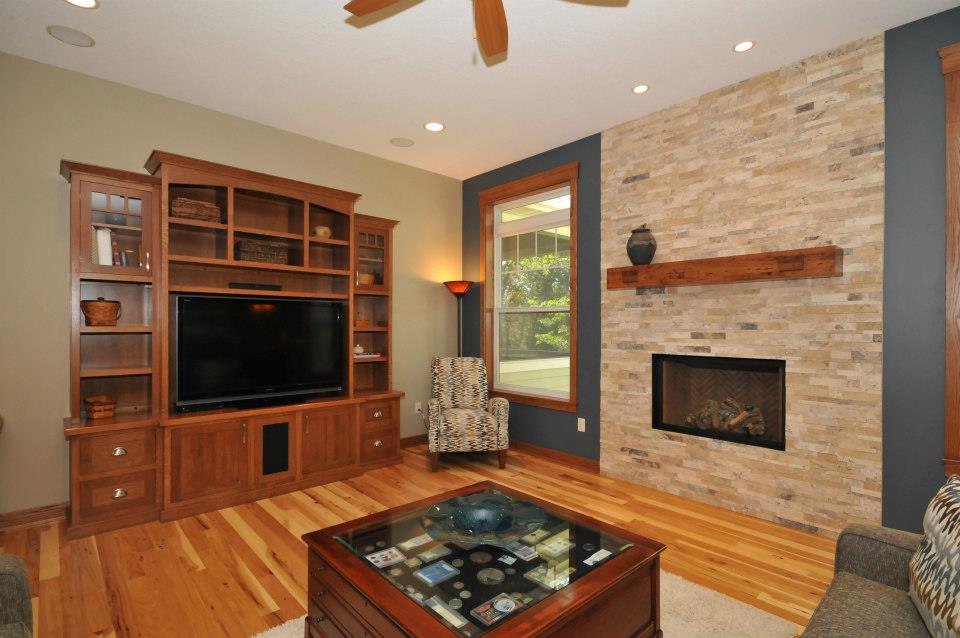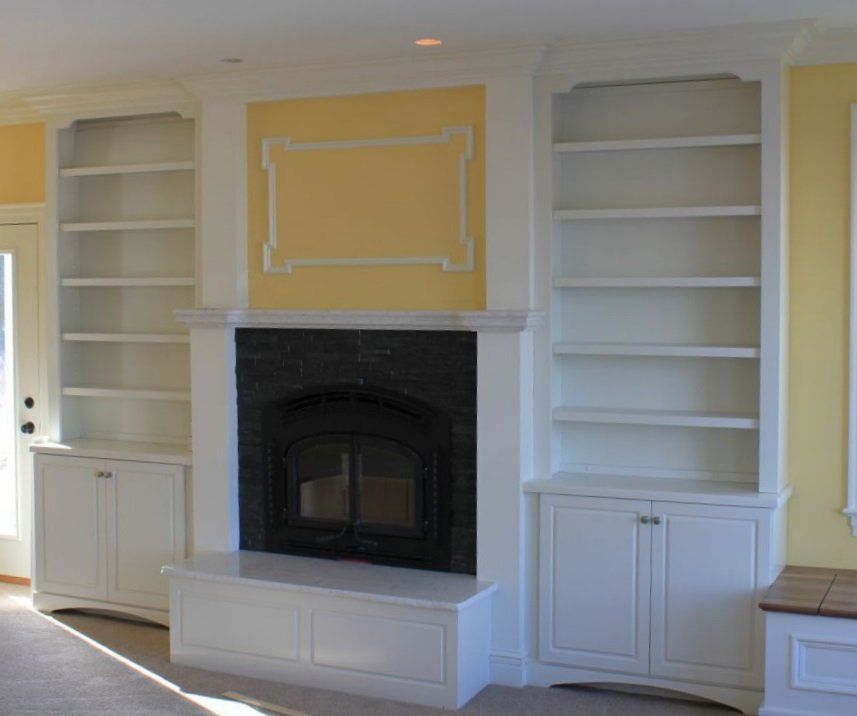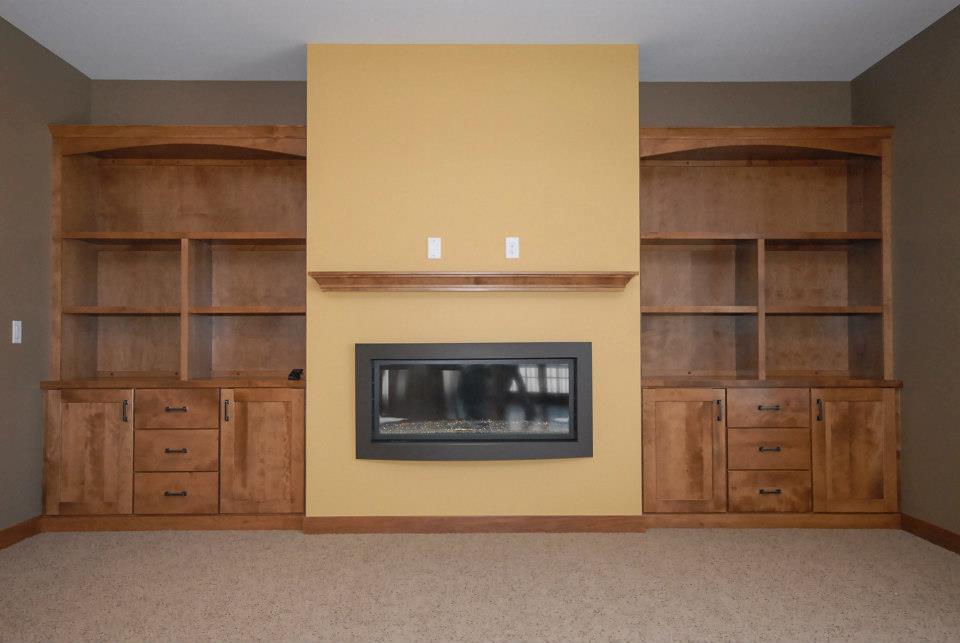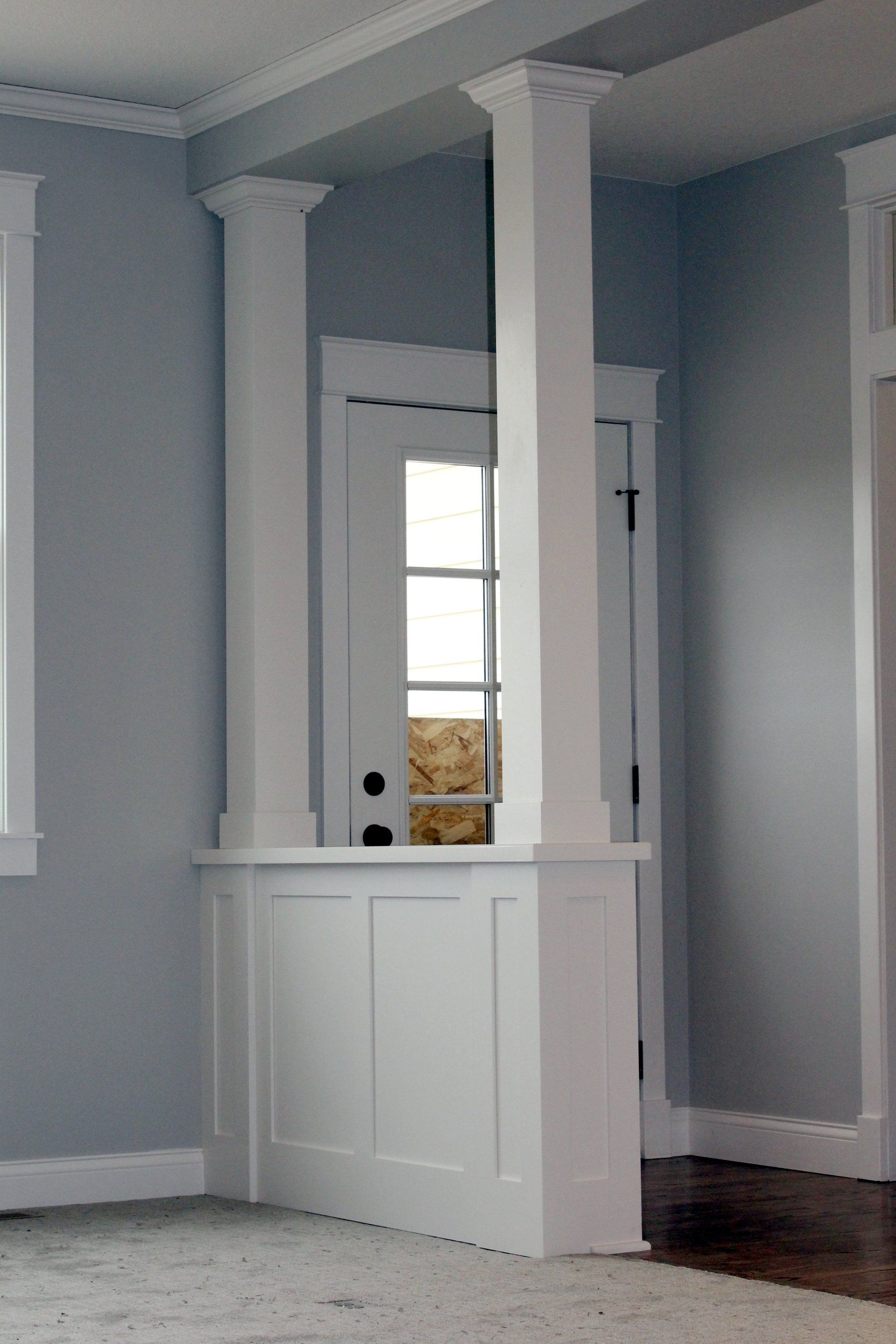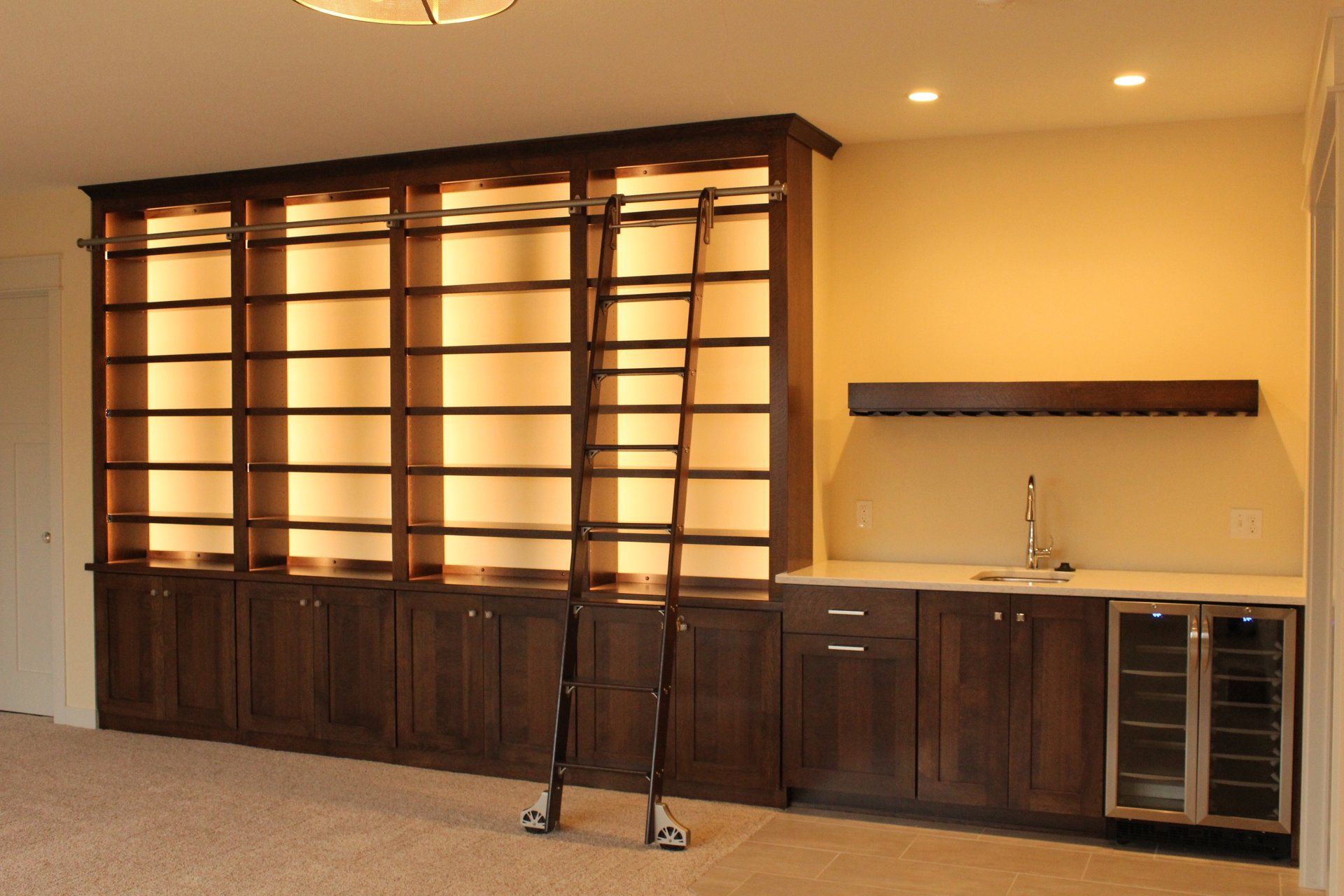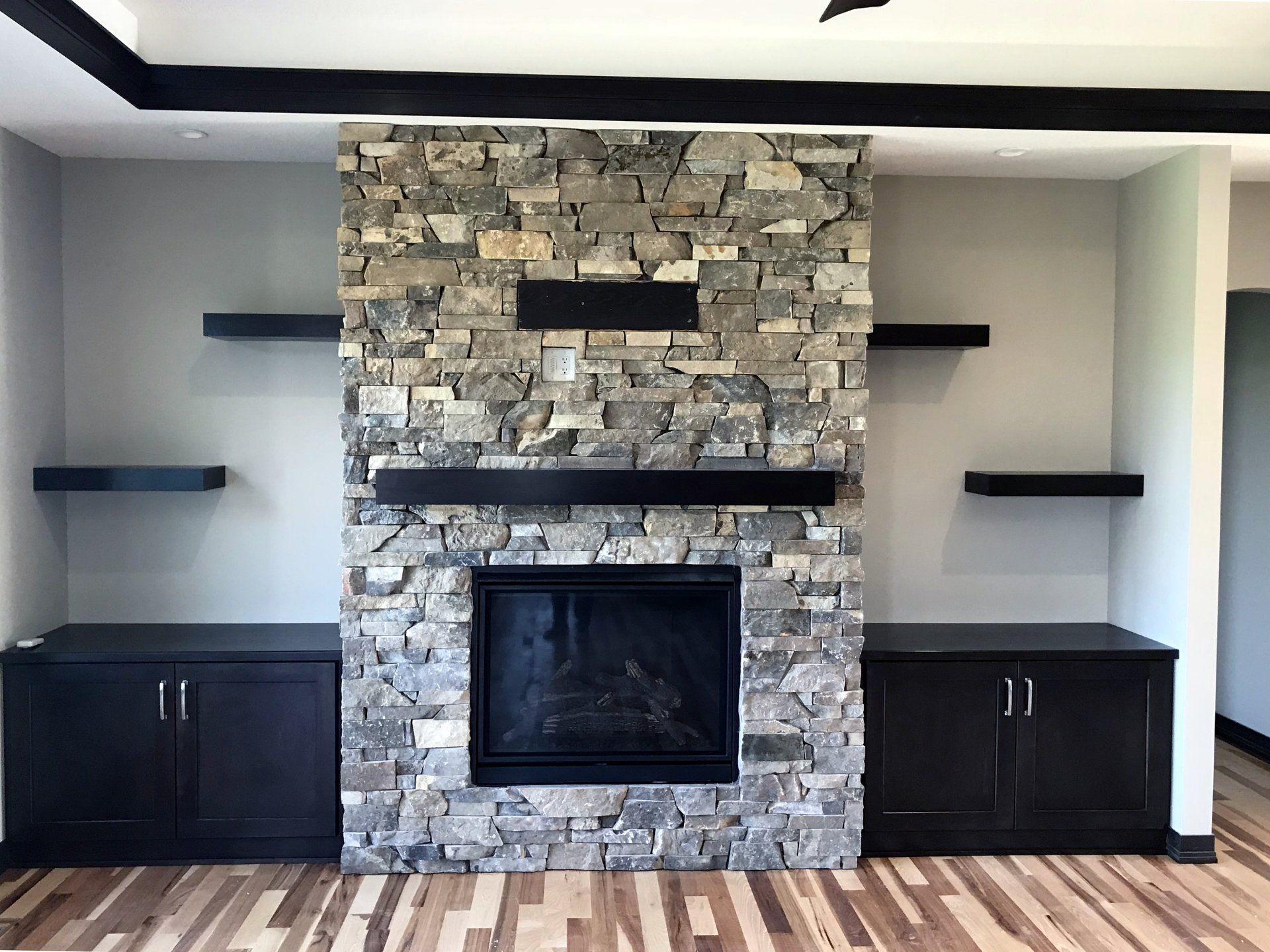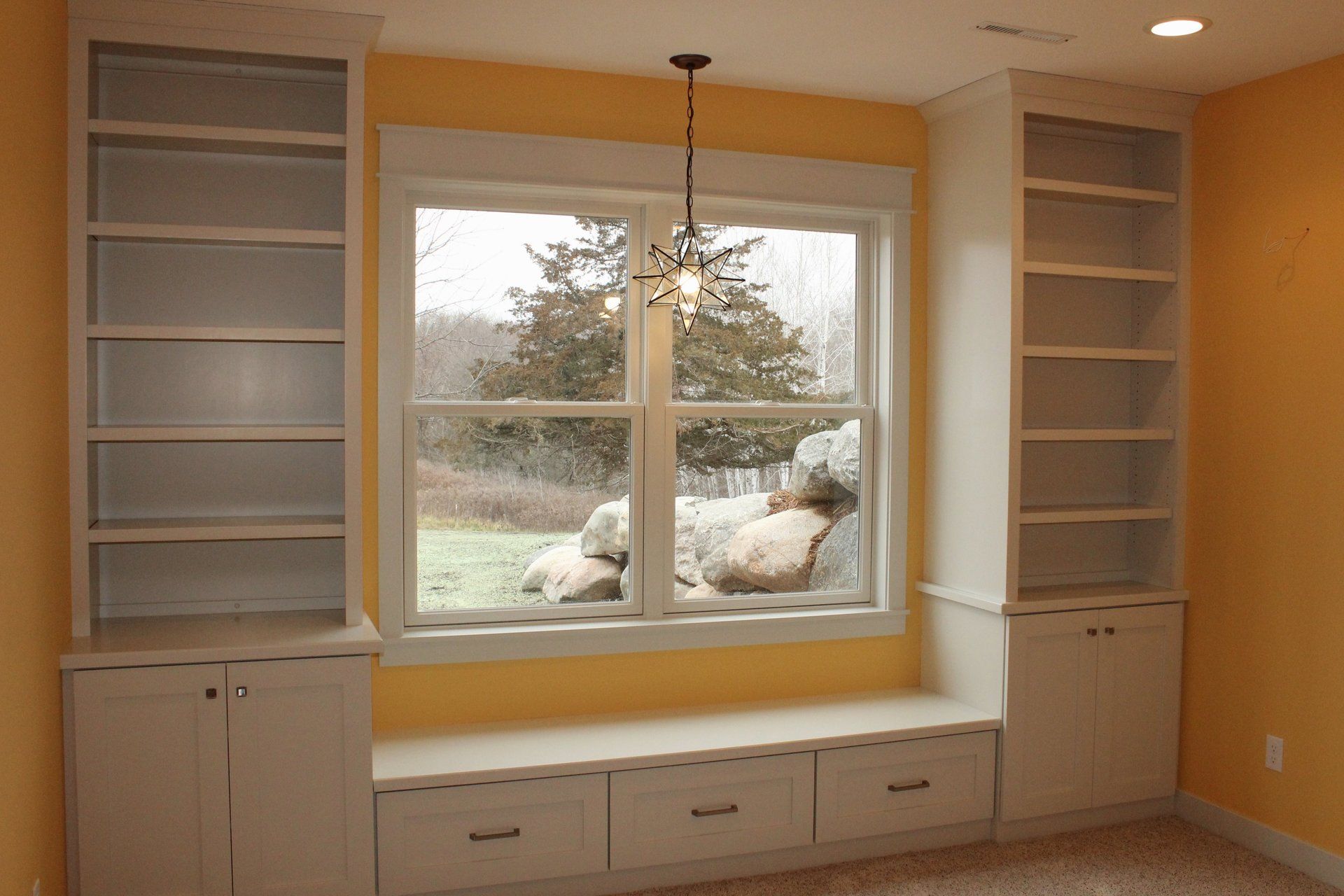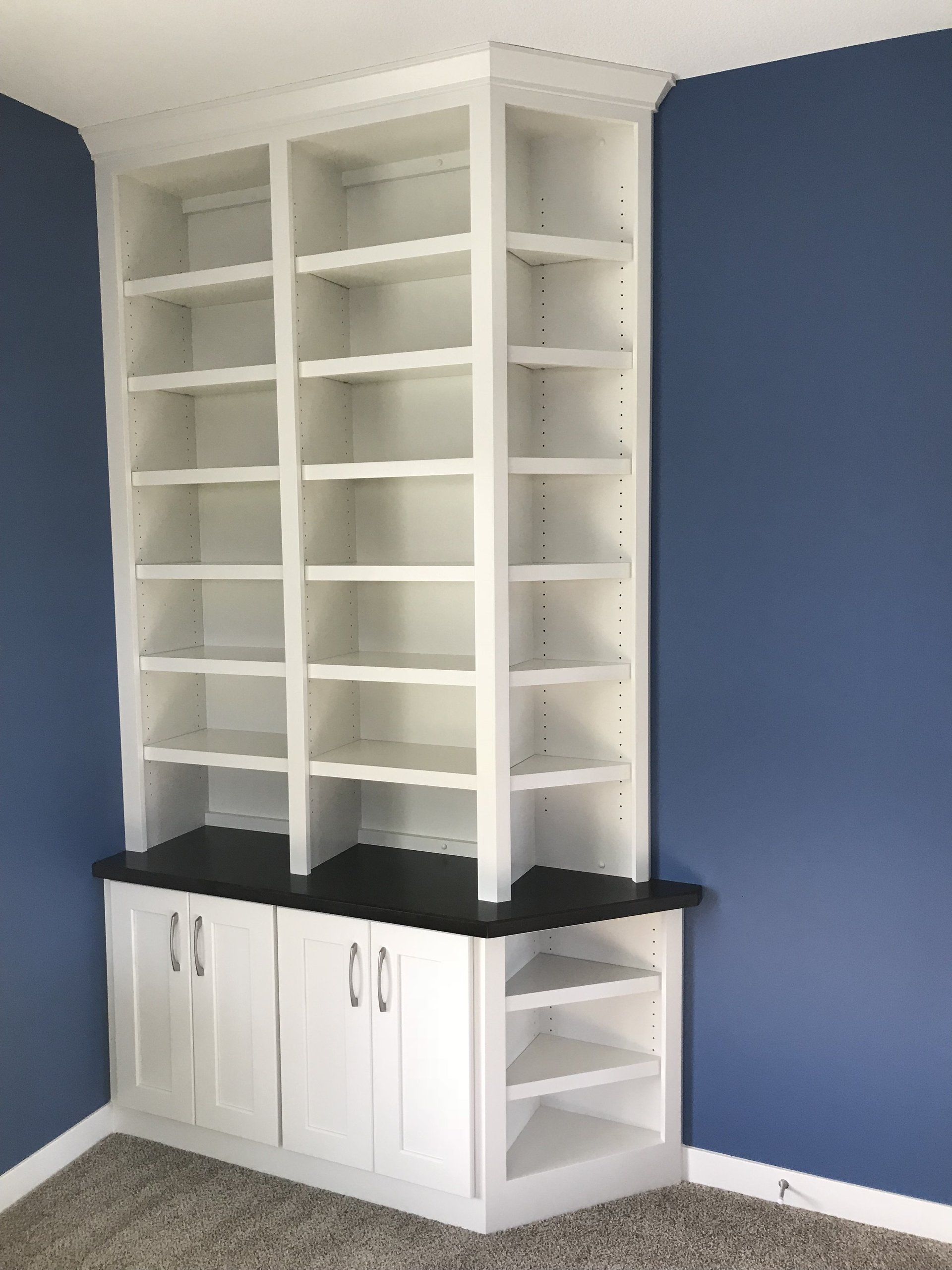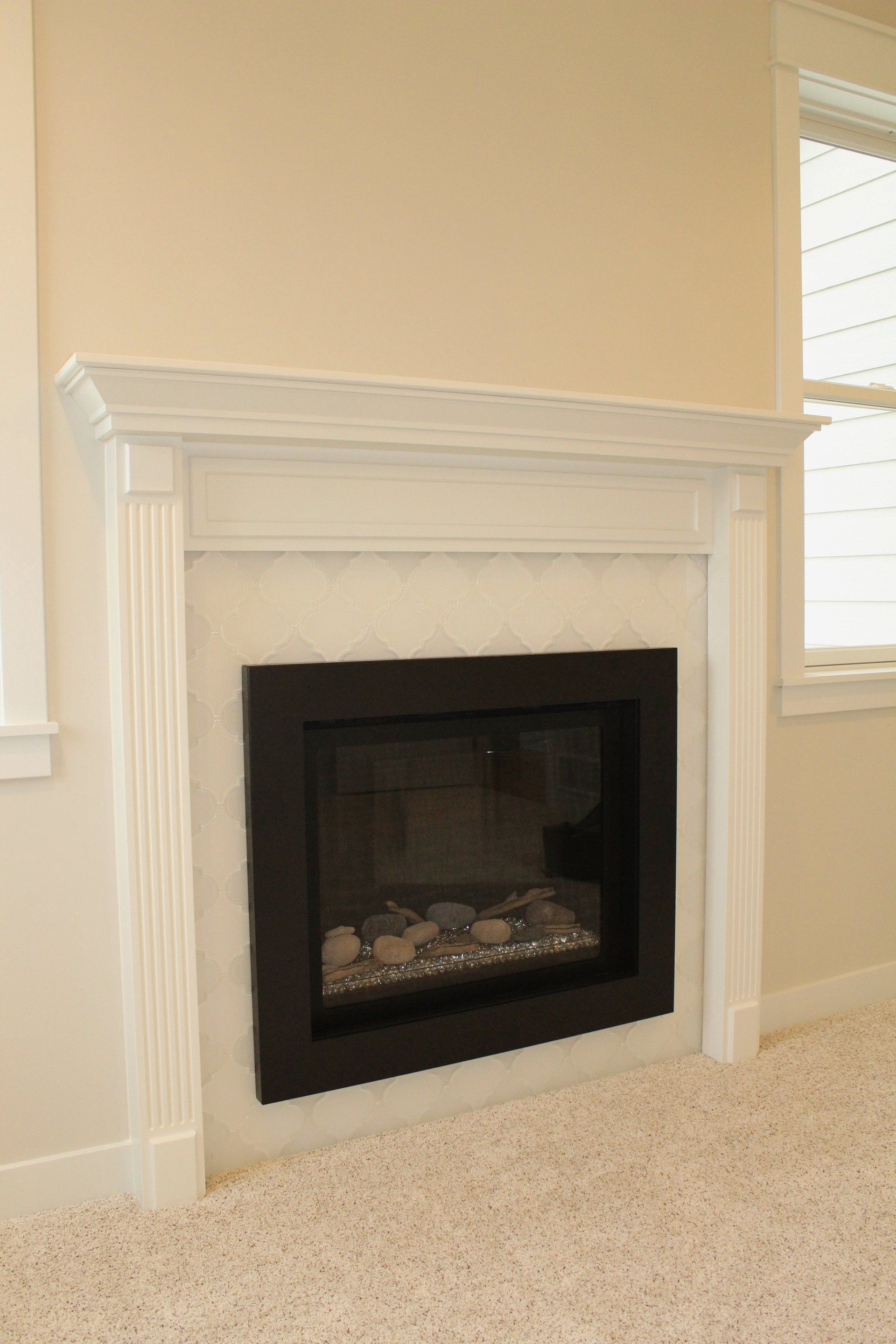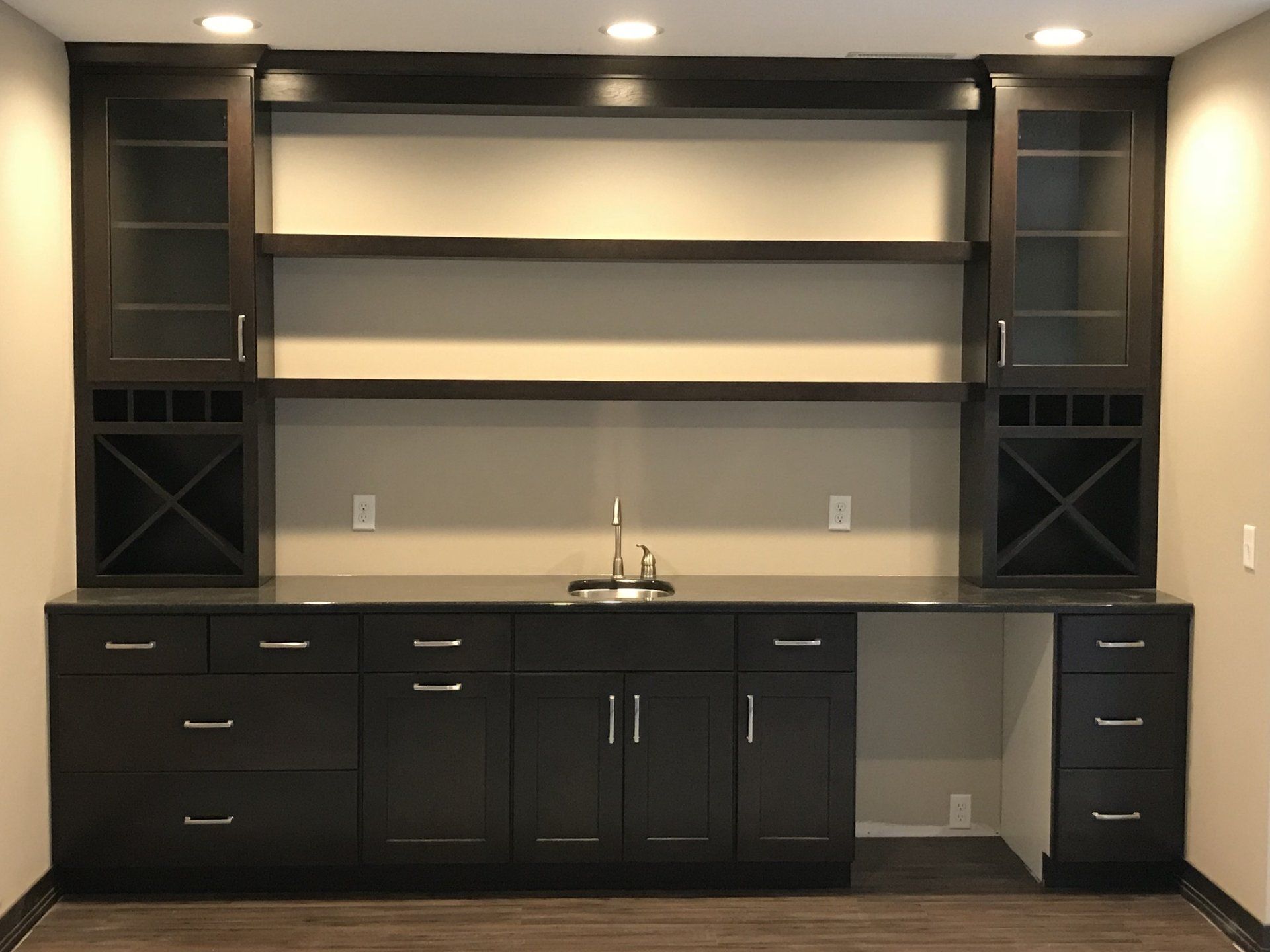REVIEWS
Building custom cabinets in Rochester, MN for over 30 years
Traditional Wood Builders Customer Reviews
Maintaining Proper Care for Your Custom Built-Ins and Cabinets
With proper care, your cabinets will provide a lifetime of use and satisfaction. Proper care involves routine cleaning, polishing and avoidance of damaging household cleaners.
Basic Care
Cleaning with the appropriate materials will help preserve your finish. Wipe with a dampened cloth and promptly wipe dry. Use a clean cloth dampened with a solution of mild dish washing liquid and water to remove oil, grease, food residue or daily spills.
Excessive Moisture
Excessive moisture may stain or cause other damage with prolonged contact. If a spill occurs, wipe it promptly with a damp cloth or sponge and dry the surface immediately. Use a blotting action rather than a wiping action to remove the substance.
Cabinetry near the sink, dishwasher and baseboards are most susceptible to excessive moisture. Dry off any areas immediately where water has spilled or moisture formed.
Avoid Temperature and Humidity Extremes
Extremes in temperature and humidity can cause wood to expand and contract, swell or warp, and possibly damage the finish of your cabinetry. It is important to control the temperature and humidity in your home year-round. See below how your home’s climate can affect your wood components.
Avoid Exposure to Waxes and Harsh Cleaners
Most common self-polishing waxes can damage your finish. Take care to use only high-quality cream furniture polishes.
Harsh cleaners can damage the finish of your cabinetry. Avoid cleaners containing ammonia, bleach, citric acid (including orange and lemon oil) and organic solvents, harsh detergents, strong soaps, abrasive cleansers; or self-polishing waxes (particularly products that contain silicone). We do not recommend using paste wax because of the “build up” and “yellowing” effects over time. We do recommend the use of a high-quality cream furniture polish.
Proper care also includes providing a wood friendly environment. Many of the internal environmental issues that affect human comfort also contribute to a wood healthy environment. Specifically, controlled temperature and humidity with minimal changes from day to day
Humidity
- Wood expands as humidity increases and shrinks as humidity decreases.
- Unfinished (exposed) wood will exhibit the most dramatic changes
- Finished wood may change with long term changes in humidity.
- Particleboard and fiberboard, exposed to water directly, will expand in thickness quickly and dramatically.
- As wood expands (swells) and contracts with changes in humidity, the finish at joints may show stress.
- This cracking is universal but is much more evident on light colored paint than on stains or dark paints.
- Where humidity exposure is uneven, pieces may warp, cup or bow.
- Most often, if humidity level is returned to a normal level and maintained for a period of time, these issues will be resolved with no further action.
Excessively Dry Air
Often the focus is on too wet (damp) or too humid conditions, but excessively dry conditions can be damaging to cabinetry as well.
Temperature
- Temperature variation can cause some of the same problems as humidity variation and the two are often interrelated.
- Temperature increase can cause materials to expand.
- Temperature decrease can cause materials to contract or shrink.
- Sudden temperature changes can cause more dramatic material changes.
Helpful Hints
- Use dehumidifiers and / or air conditioners in summer to control excess humidity.
- Use a humidifier to keep the air from becoming too dry in winter.
- Maintain climate control during the off season of vacation homes to reduce the risk of damage.
- Prior to installation of new cabinets, acclimate the cabinetry by moving it into the room it will be in when done.
- This should be done well in advance of the installation.
- If this is not possible, use an adjoining room of similar climate conditions.
- Do not store in a garage, basement or other unheated or unconditioned space prior to installation.
Contact Us Today
Traditional Wood Builders Inc
Fax: 507-288-0186
508 9th Ave NW,
Rochester, Minnesota 55901
Tel:
507-288-3175
Rochester, Minnesota 55901
Fax: 507-288-0186
Privacy Policy
| Do Not Share My Information
| Conditions of Use
| Notice and Take Down Policy
| Website Accessibility Policy
© 2025
The content on this website is owned by us and our licensors. Do not copy any content (including images) without our consent.

